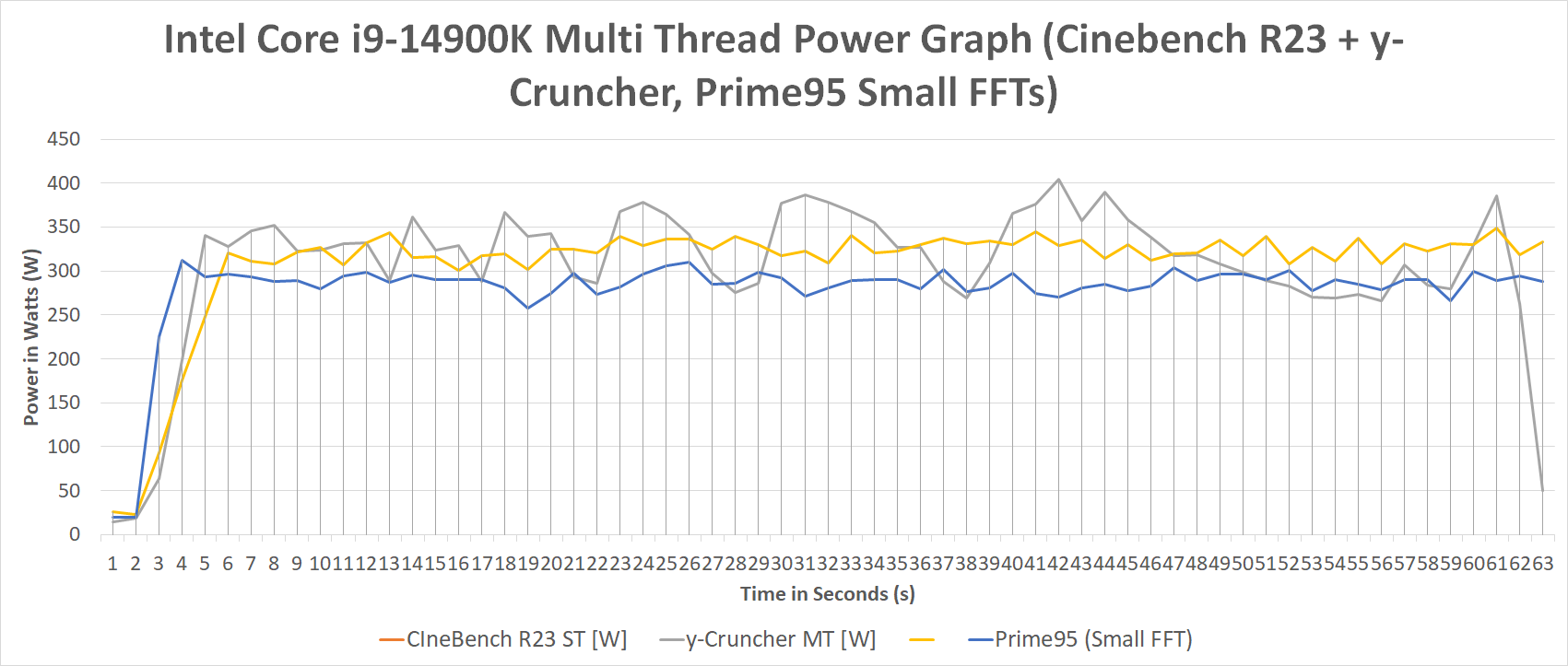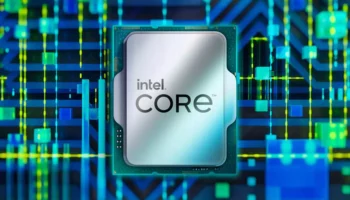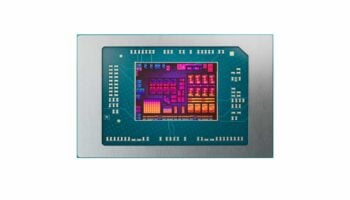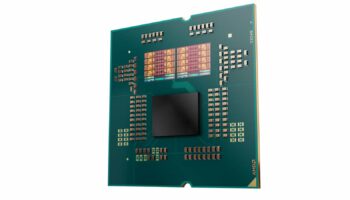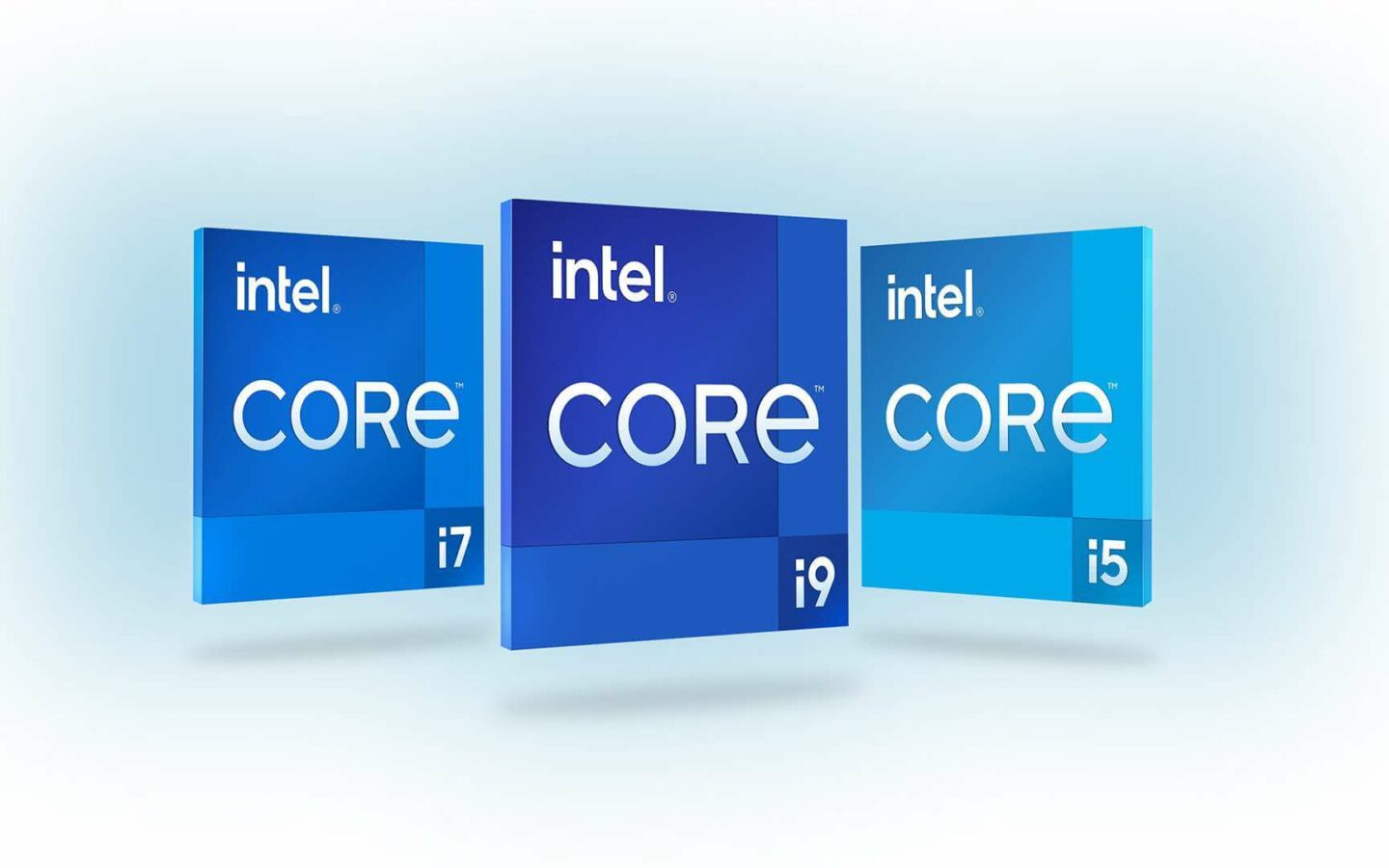
Intel’s 14th Gen Raptor Lake-S Refresh is out for desktop and DIY enthusiasts. A rebrand of the 13th Gen family, it offers slightly higher clocks than existing SKUs without an additional markup. Understandably, these “new” CPUs perform very similar to their predecessors. The Core i9-14900K is a mere 1.4% faster than the 13900K and 4.6% slower than the Ryzen 7 7800X3D (despite costing more). These minuscule gains are largely the result of a higher power envelope.
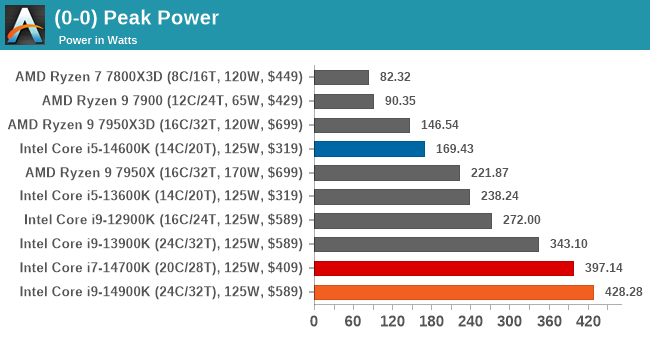
Tests conducted by AnandTech show the Core i9-14900K peaking at 428W under load, 85W higher than the Core i9-13900K. Its 28-thread sibling, the Core i7-14700K, tops out at 397W, followed by the 13900K at 343W. The fastest gaming CPU, AMD’s Ryzen 7 7800X3D, doesn’t exceed 82W, while the 7950X3D is limited to 146.54W. Ergo, the 14900K draws 5.2x more power than the 7800X3D.
The Ryzen 7 7800X3D may be an octa-core CPU, but it does offer superior gaming performance than any 14th Gen Intel chip. At $369, it also costs notably less than the 14900K. Even the 32-thread Ryzen 9 7950X3D draws significantly less power than this Refresh. We are looking at a power delta of 23W versus the 14600K and a massive 280W+ compared to the 14900K.
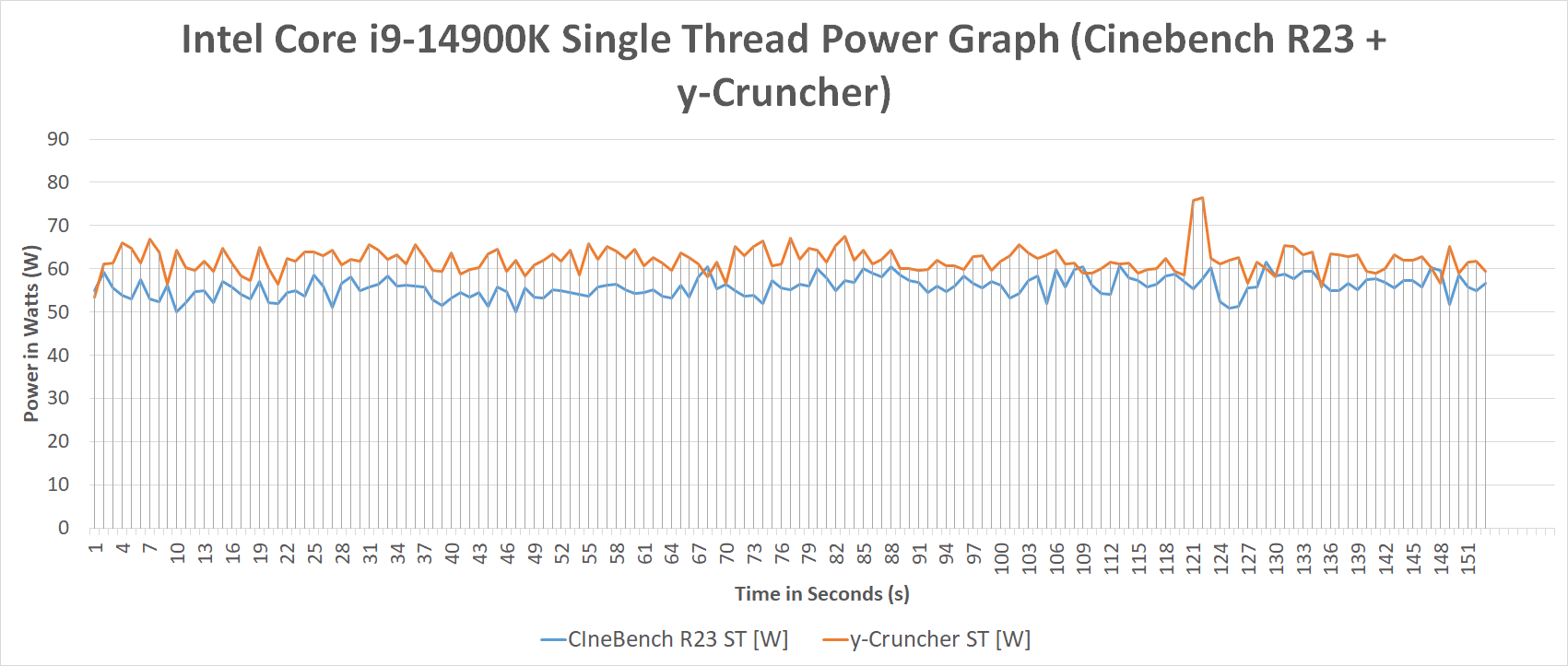
AnandTech ran Cinebench R23 and y-Cruncher to measure the single-threaded power consumption of the Core i9-14900K. The single-threaded peak is 78W, nearly the same as the power draw of the entire 7800X3D. You can find the single and multi-threaded charts above and below.
